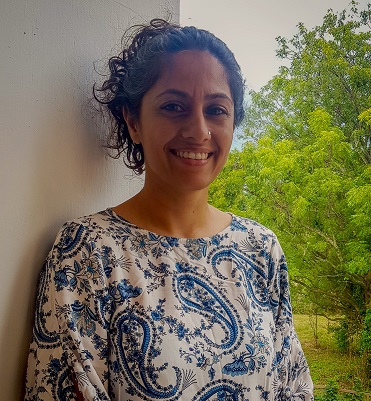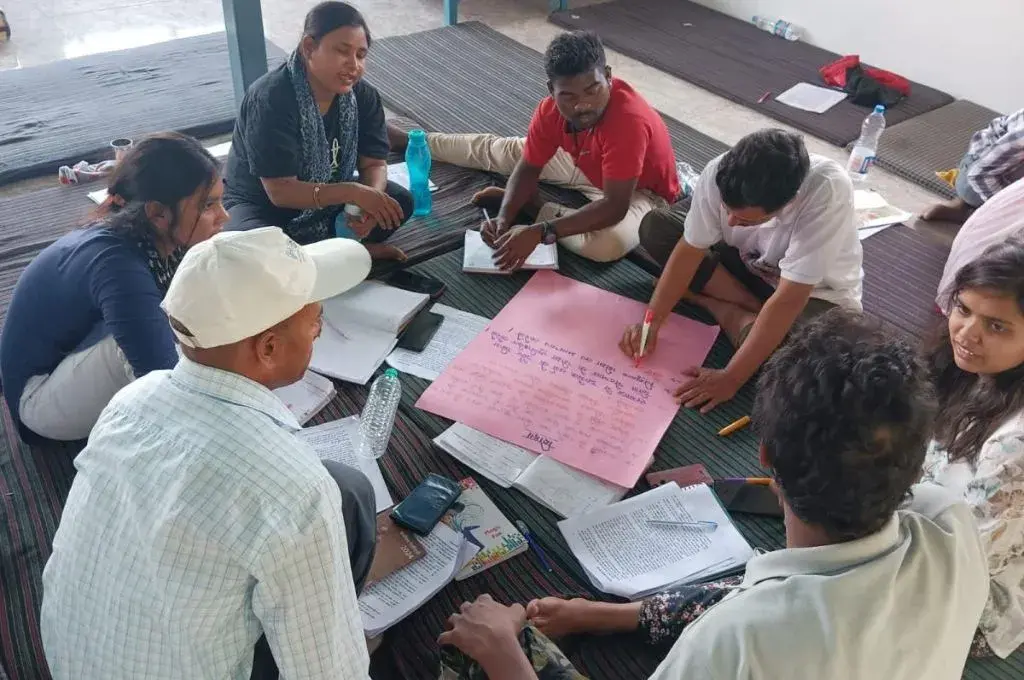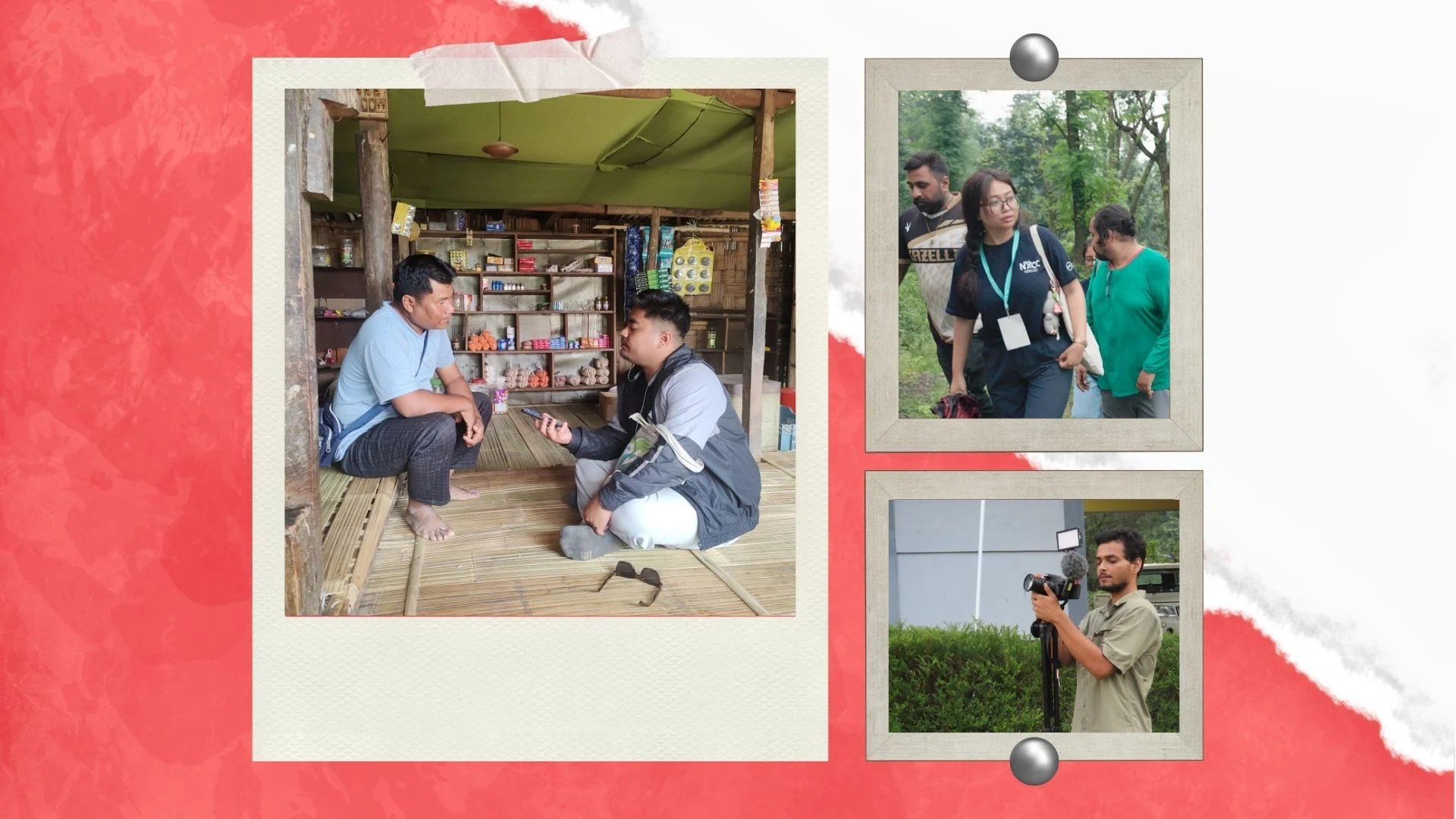This article is part of Failure Files, a special series conceived by India Development Review in partnership with Acumen Academy, where social change leaders chronicle their failures and lessons learnt.
This past year, one of the most exhilarating and exhausting in my work life, I failed to live up to a core personal and professional value. I failed to put into practice what a truly feminist organisation should be.
I lead Chambal Media, a feminist media enterprise run by a diverse group of women from different classes, castes, geographies, and ages. We are committed to create a space where everyone brings their own histories and visions to the table; their own languages, styles, and stakes, to create a living, breathing (even profitable!) idea of feminist media.
Chambal Media trains rural women to be journalists and publishes stories from small towns and villages across Uttar Pradesh. Our team comprises 30 women from rural and urban India. A majority of them are Dalit and Other Backward Class (OBC), and many have completed their formal education after joining the organisation.
Over the past four years, we have worked on making the organisation self-sustaining, by moving to a digital-first model, and experimenting with new revenue streams. In the glamour of designing and rolling out feminist business plans (those rare ventures that manage to raise questions about unjust social structures and make some money too), what suffered were the needs of individuals within this grand plan.
I was left with a confused team, an insecure organisation, and a deep sense of inadequacy.
What happened was this: We decided to shift from a nonprofit to a for-profit model. Within the first month of this transition, a co-founder and dear friend, one who had built our foundation in the field, quit. In the year that has followed, in the process of setting up the business model and culture of the new entity, I also lost two colleagues, who were to play key roles in operationalising this vision. I was left with a confused team, an insecure organisation, and a deep sense of inadequacy of being able to lead in an empathetic yet decisive way.
Power struggles
The process of shifting an organisation that had been a nonprofit for 17 years to a for-profit model was tedious, painful, and strained. It involved multiple risks: Shifting away from the familiarity of philanthropic funding, and making certain roles redundant. We made this decision due to our inability to stay afloat with only philanthropic funding, given the shifting media and political environment. I strongly advocated for this decision.
In the months before my co-founder left, we were immersed in covering an intense general election and were unsure of the organisation’s future. Our monthly leadership meetings were tense affairs. The leadership team comprised myself, another urban-educated co-founder who was on sabbatical at the time, and two rural, Dalit colleagues. Conflict about our way forward strained power dynamics between the three of us. My colleague, who ended up leaving, was older and more experienced, and had a deep investment in the organisation’s identity as it was known locally. She felt that we were moving away from its history, and was resistant to change. I was less experienced than both my rural colleagues, yet came with privileges of access, caste, and class. I was responsible for sustainability. I strongly advocated that if we were to stay relevant, we had to change. For the first time in our working relationship, the unequal balance of power made decision-making very difficult.
Slowly, she withdrew from engaging with decisions about the future, and the situation took a toll on her physical and mental health. I felt constant guilt and resentment, along with the pressure of being accountable to funders who wanted to see sustainable plans from us. Finally, armed with legal advice, we decided to move forward on certain difficult decisions—shifting to a for-profit entity and a restructuring the team. This was when my colleague put in her resignation.

The process of shifting an organisation that had been a nonprofit for 17 years to a for-profit model was tedious, painful, and strained. | Picture courtesy: Pixabay
Changing working styles
As we shifted towards a for-profit digital media model, we hired new colleagues—many of them urban-educated and living in cities—in roles that never existed before. We wanted them to be inspired, mentored, and a part of the future of the company. I was playing the role of their manager and mentor, and was (too) eager for them to learn our history and take ownership of our values.
I was too judgmental of what I perceived as an indulgence of individual needs, especially of my more privileged team members.
I was simultaneously engaged in building a new company with a new ambition, new products, and a new culture that straddled efficiency and empathy. The nature of the work was exacting—both in the context of running an independent rural news channel, and making it sustainable. The work was never confined to office hours, and in many ways, it had no end. And so I was demanding, of myself and also of my new colleagues. I pushed them to see their own privilege; to try and make them more ambitious and efficient; to understand why certain ideas of ‘professionalism’ and boundaries were out of place when some of our team members were confronting structural oppression daily to do their jobs.
I was conscious that the expectations were high. I tried to be empathetic, and tried to redefine my very fluid boundaries between the personal and professional. For example, I would avoid getting in touch with team members outside of office hours. I would share my own vulnerabilities and leadership struggles to temper reviews of performance and deadlines. And I tried to make space for self-care. I tried to think about how diversity also meant understanding and adapting to the needs of team members across the lines of class. But I failed to detach my own consciousness of class and caste, from the way that new colleagues may negotiate this. I was too judgmental of what I perceived as an indulgence of individual needs, especially of my more privileged team members, over what I felt that the organisation or rural team members needed.
Biases. Internal conflict. Undue stress.
I gain stamina and stimulation and build resilience on the back of my commitment to a vision. It’s hard for me not to be judgmental of anyone who is not, in my opinion, doing ‘enough’ to take that commitment seriously. This is a very slippery slope. Where is the possibility of inclusiveness and co-creation of a vision then? What is ever enough, in our line of work? Is this a reason for the high levels of mental health issues and anxiety that are common across our ‘progressive’ social organisations?
As a tentative leader and a new entrant into the space of social business, I felt I had much to prove.
For me, the collective’s needs and specifically the needs of those team members who came from less privileged backgrounds, were the reason why the organisation was built. And so, I did not accord as much space or attention to the needs of newer colleagues.
Additionally, as a tentative leader and a new entrant into the space of social business, I felt I had much to prove. I had always accorded people and process more importance than results, and now I ended up hovering around my colleagues, monitoring them closely, heightening the pressure. I felt that I could never do enough, either to support a new colleague or to hold that colleague to account. And I failed to manage or communicate this internal conflict of needing to be a leader who was open and inclusive about feedback, while also being able to effectively deliver feedback on performance and accountability. As a result, I made both working together and the exit process unduly stressful.
Failure takes different forms
Failure is often a feeling that comes and goes; it’s not a tangible car wreck. It may not look like failure at all on some days, when you have your Wonder Woman suit on. But I do see these losses as important personal failures, even if they involve others’ accountability and responsibility. They have shown me aspects of my personality that are difficult to work with.
Failure is often a feeling that comes and goes; it’s not a tangible car wreck.
Apart from the intense guilt, and distraction from the many things I was meant to be doing as a leader, I was conscious that the exit of my colleagues was not good for a new company’s morale. While I encouraged team members to bring their ideas and ownership to build the company, it was an example of both new and old team members being unable to make a space for themselves in the organisation. The team seemed to mirror my own conflict and strain. There was confusion around the expectations that I had of people. Confusion around what people were meant to be living up to, and when and how could they say that it was too much.
Towards creating a thriving feminist business culture
To be empathetic and also make necessary decisions in the interest of efficiency feels like a Sisyphean process. I often feel like I’m slowly moving backwards. I think my failure to incorporate diverse visions and styles has been a consequence of treating this business with far too much fastidiousness. The fact is that this feminist vision is never complete; it is not just mine, but is part of the collective failures and successes of team members from varied locations. There is much to be gained by holding on less tightly.
Grand business plans and constant vulnerability notwithstanding, during the lockdown we put in place an externally facilitated process: Kya Khyal Hai? (What do you think?). The idea was to listen to and understand team members’ ideas of themselves in the organisation. We did this over a series of workshops with the rural and urban teams, through play and open-ended discussions. We tried to understand: What does relationship building in a diverse organisation look like? Whose realities take precedence in setting organisational goals and culture? What does taking care of ourselves look like? What does accountability to the organisation look like? How does the team see this balance working? How can this balance also be a shared responsibility?
We are now in the midst of weaving these processes into our day-to-day. It’s a day-to-day that is constantly fraught and perhaps always will be, but is constantly hopeful of creating a thriving feminist business culture. Not only with the rural women who were at the heart of our venture, but with womxn from a range of backgrounds who will take this company forward together.





